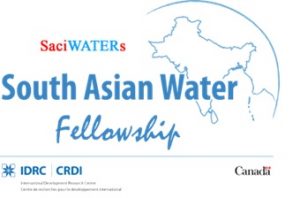South Asian Water (SAWA) Leadership Programme on Climate Change has evolved as a continuation to the Crossing Boundaries (2005-2012) and SAWA Fellowship (2012-2016).
The Crossing Boundaries Project (2005-2011) focussed on imparting and integrated approach to water resources while laying emphasis on the local context in India, Sri Lanka, Bangladesh and Nepal. Since 2 005 the project has been crossing boundaries in water education, injecting principles of sociology, development studies and macro economics into what was previously considered a pure civil engineering subject. The key of Crossing Boundaries relevance to the water sector in the region lay in its interdisciplinary approach. Its ultimate goal was to stimulate a paradigm shift in water resources management in the South Asian region
005 the project has been crossing boundaries in water education, injecting principles of sociology, development studies and macro economics into what was previously considered a pure civil engineering subject. The key of Crossing Boundaries relevance to the water sector in the region lay in its interdisciplinary approach. Its ultimate goal was to stimulate a paradigm shift in water resources management in the South Asian region
The SAWA Fellowship Programme (2013-2016), was funded by International Development Research Centre (IDRC) and was implemented by SaciWATERs and its four partner institutions in India, Bangladesh, Sri Lanka, and Nepal. The objectives of the project was firstly; to create a new generation of 60 interdisciplinary water professionals in South Asia trained to deal with issues of climate change adaptation, water and food security. Secondly, the project aimed to generate action-oriented research in the aforementioned fields through Master’s degrees in Integrated Water Resource Management in Bangladesh, India, Nepal and Sri Lanka. Thirdly this project sought to address this gender imbalance in participation in water sector by awarding 80 percent of the fellowships to women; the rest of the fellowships will be awarded to men from lower socio-economic groups. Fourthly, it aimed to share knowledge and ideas about water issues in the South Asian context, through meetings and exchanges between fellows.
by SaciWATERs and its four partner institutions in India, Bangladesh, Sri Lanka, and Nepal. The objectives of the project was firstly; to create a new generation of 60 interdisciplinary water professionals in South Asia trained to deal with issues of climate change adaptation, water and food security. Secondly, the project aimed to generate action-oriented research in the aforementioned fields through Master’s degrees in Integrated Water Resource Management in Bangladesh, India, Nepal and Sri Lanka. Thirdly this project sought to address this gender imbalance in participation in water sector by awarding 80 percent of the fellowships to women; the rest of the fellowships will be awarded to men from lower socio-economic groups. Fourthly, it aimed to share knowledge and ideas about water issues in the South Asian context, through meetings and exchanges between fellows.
As a further initiative from these projects the SAWA Leadership Programme aims at facilitating the creation of a group of interdisciplinary women leaders in south Asia, having a common understanding of the crosscutting scientific and societal issues of water resource management. The program will award fellowships to 36 women enrolled in master’s-level Integrated Water Resources Management (IWRM) programs. The program will place emphasis on intensive trainings in the application of research methods, internships to allow candidate to link their research to actual decisions and applications, mentorship to support the student’s research and common curriculum development to ensure coherence across all the partner institutions.
